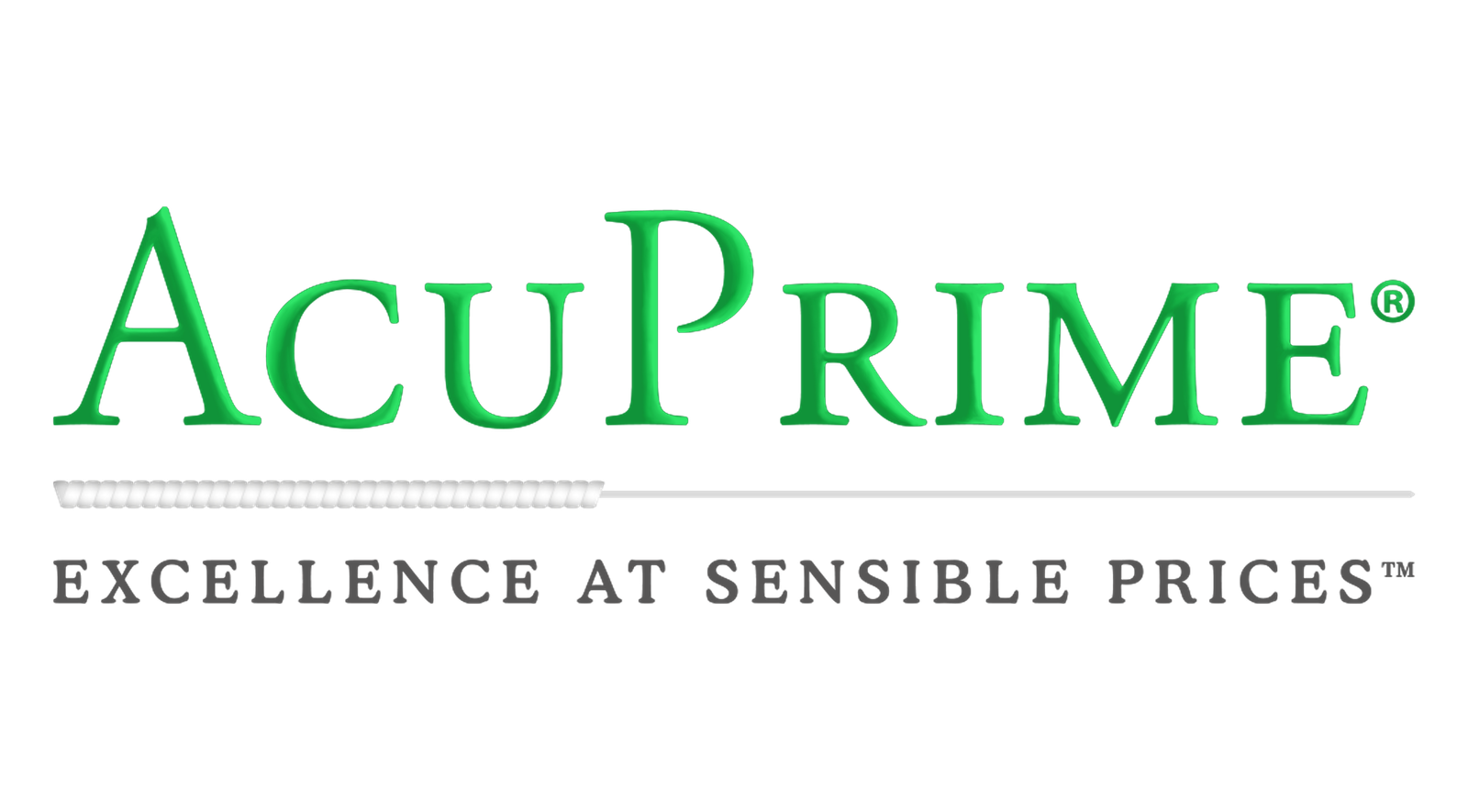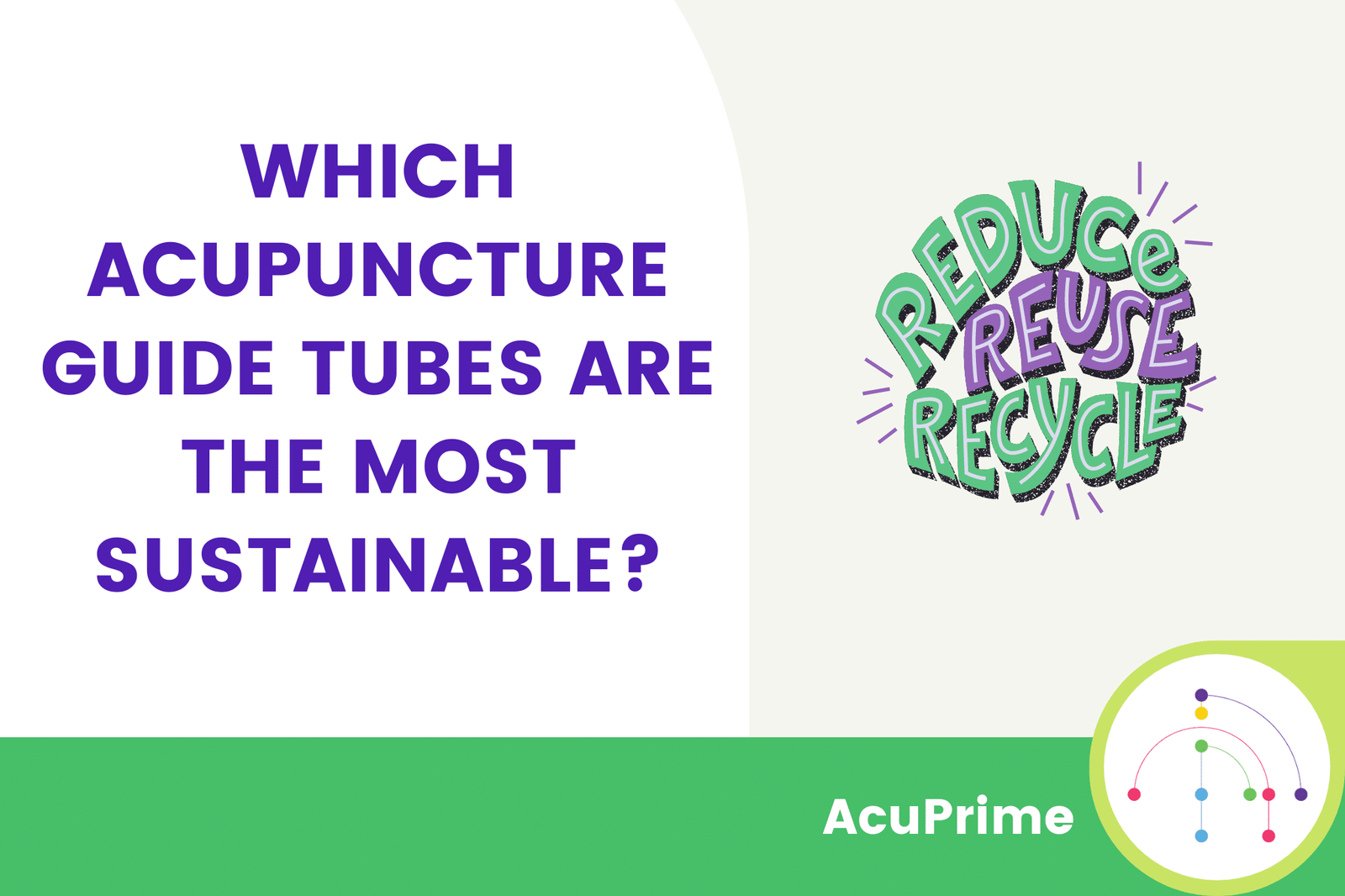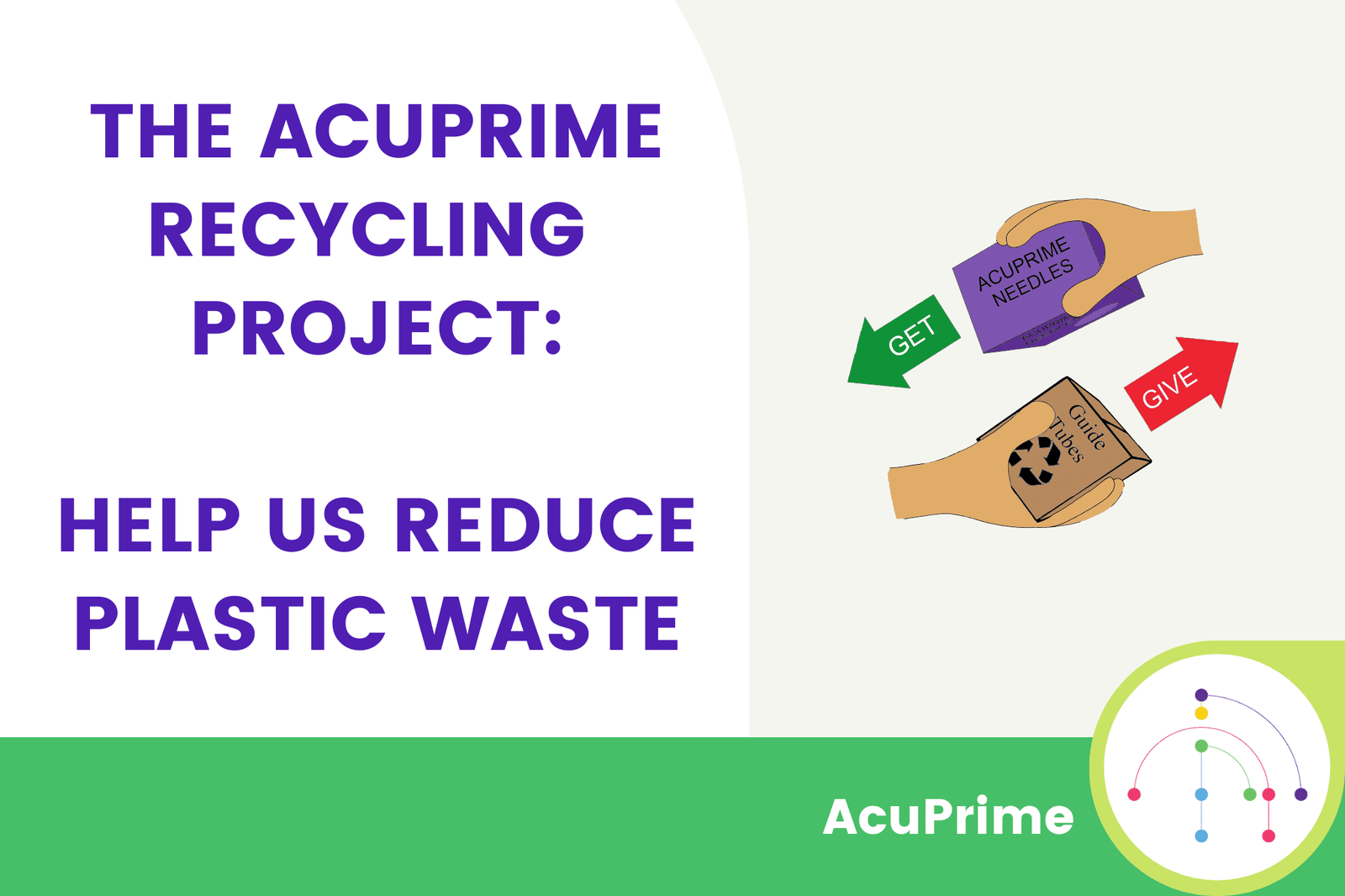Harmonious products for a harmonious treatment
Acupuncture is designed to work in harmony with the human body. As a result, it’s important that this holistic form of treatment works in harmony with nature as well. As a provider of acupuncture supplies, it’s important to us that our products are increasingly sustainable as the technology allows so we’ve have been trying to make our products more eco-friendly. This sometimes means reducing plastic packaging and selling our products in larger multi packs but when it comes to acupuncture guide tubes, there are a lot of things to take into account.
So, with that in mind, what are the best options for sustainable acupuncture guide tubes in today’s world?
Bamboo guide tubes
Bamboo guide tubes are, on paper, a pretty perfect option when it comes to sustainable options. Bamboo is a fast-growing plant which allows bamboo products to be incredibly sustainable. They should also be 100% biodegradable.
This material is lightweight and if it’s sourced from a sustainably managed forest, it can make for a brilliant option. However, it’s not all good news. The processing that bamboo must go through to be converted from the original plant to the size and shape required for accurate needling is harsh and can use chemicals and glues that prevent bamboo from breaking down when disposed of.
It’s not just harsh processing that make bamboo guide tubes unsustainable.
There have been concerns that child labour is used in the production of some bamboo products. Sustainability is not just about protecting natural resources and the earth – for something to be sustainable, it must also be sustainable in a human way which means sustainable employment regulations and fair treatment. Due to a report issued by U.S. Department of Labor, we don’t feel confident that we can trust that a supply of bamboo has not been supplied in part by child labour.
As much as bamboo sounds like a great option, it currently isn’t.
Plastic guide tubes
Plastic guide tubes are by far the most popular in modern acupuncture. This is because the technology available makes it fast, easy and cheap to produce guide tubes out of plastic. These guide tubes are easy to sell sterilised, they’re lightweight, and can be quickly produced en masse.
Obviously, plastic is not an ideal material. It can shed micro-plastics, which end up in the water system and then the ocean; it also uses oil and harsh refining and manufacturing processes which cause pollution. The carbon footprint of plastic is even worse if single use plastics end up in landfill.
However, plastic can have a considerably lower carbon footprint if it is recycled, and we believe that recycling affectively is one of the best ways to mitigate the damaging effects of plastic. Because many local councils do not recycle plastic of all types or in a way that means the plastic goes on to be made into other products, we’ve decided to arrange the recycling of all our plastic guide tubes. In doing so, we can make our plastic guide tubes more sustainable from an environmental and human point of view than we could were we to use bamboo guide tubes.
You can read about our recycling project for guide tubes here.
Metal guide tubes
Just like with modern straws, sometimes metal is one of the best materials to work with. Metal tends to be easy to sterilise and, as a result, metal guide tubes can be used time and time again. They’re also typically crafted from stainless steel, a cheap and common material. Metal guide tubes can be a very sustainable option; however, they are considerably more difficult to acquire and more expensive. They’re also heavier to transport, increasing shipping costs to both suppliers and end users.
Stainless steel guide tubes can be a great option though, particularly as stainless steel is also recyclable. At this time however, it’s difficult to source metal guide tubes in large quantities and creating a recycling system for plastic guide tubes is still preferable.
Join us to build a more sustainable acupuncture industry
Learn more about our guide tube recycling project or shop our acupuncture range – which includes many needles with a high needle to guide tube ratio – and help us make acupuncture a more sustainable industry going forward.








